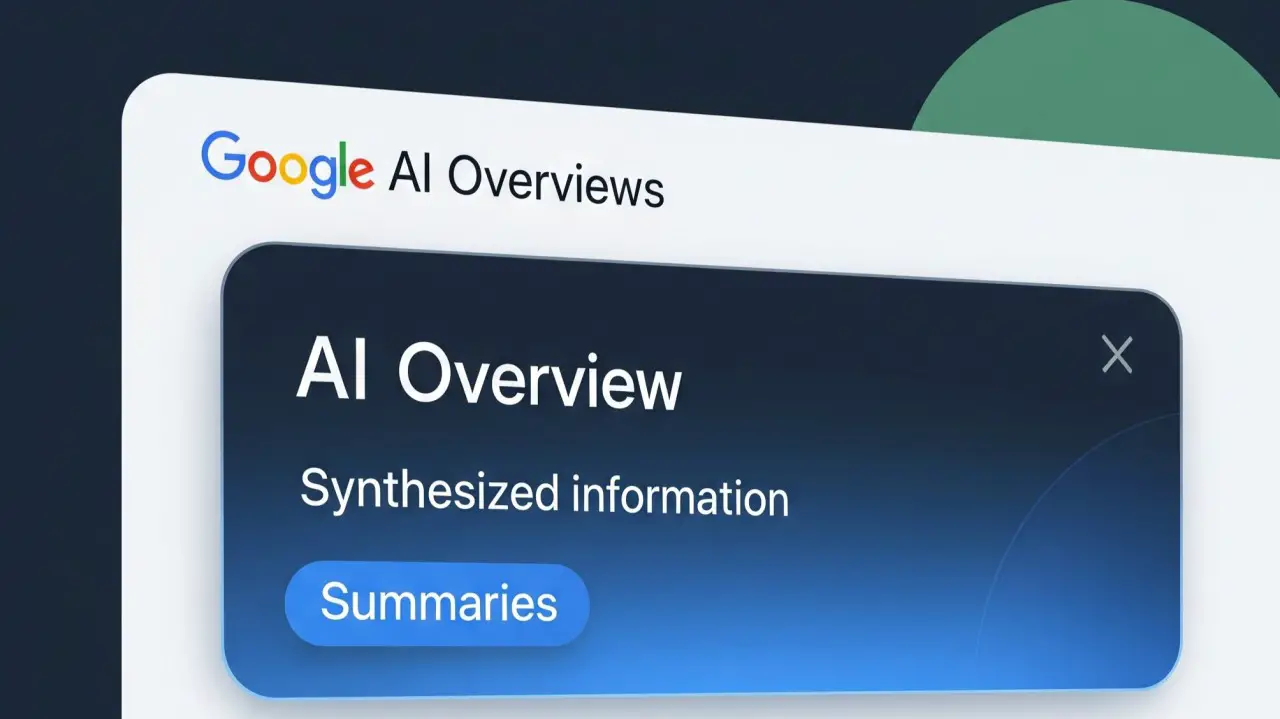Small businesses have long relied on search engines like Google to attract customers and generate revenue. The formula was simple create helpful content, optimize for search rankings, and watch traffic grow.
However, with the emergence of the Google AI overview, this strategy is under threat. Google’s AI now provides direct answers to users’ queries at the top of search results, often eliminating the need for users to click on a website.
For small business owners, understanding this shift and adapting quickly is crucial. The Google AI overview was introduced in May 2024 to improve search efficiency. Instead of just listing links, Google now generates summaries of the most relevant information, giving users quick answers.
While this is convenient for users, it reduces website traffic for businesses that rely on organic search. Knowledge based companies such as consultancies, online learning platforms, and publishers were the first to feel the impact.
Even local businesses like cafes, plumbers, or boutique stores may soon notice changes. AI powered search results are increasingly integrating location-based data, meaning even near me searches could be summarized rather than linking directly to websites.
Andrew Shotland, founder of Local SEO Guide, notes, Small businesses that create educational content to attract clients are already seeing fewer clicks. AI summaries answer the questions, leaving websites at the bottom.
How Small Businesses Are Affected
The effects of AI powered search on small businesses include. Reduced Click Through Rates Users get answers directly in search results, bypassing websites.
Content Strategy Changes Long form content no longer guarantees high traffic. Increased Competition Businesses must compete for attention beyond search results. Importance of Trust Users are more likely to click sites with established authority.
For example, a law firm that traditionally attracted traffic through queries like Is car sex legal in Alabama? now sees Google AI summaries providing direct answers, referencing sources like FindLaw or Justia. While attribution is included, fewer users visit the original site.
Consider Sunny Bistro, a small restaurant in Austin, Texas. The bistro relied on blog posts about recipes and food culture to attract visitors. After the Google AI overview rollout, website traffic dropped by 25% in six months.
Rather than panicking, Sunny Bistro adapted. Optimized for location based searches and AI friendly content. Started hosting live virtual cooking classes and recipe Q&A sessions.
Encouraged customer generated content on social media. Within three months, Sunny Bistro regained traffic and increased customer interaction through channels not affected by AI overviews.
Expert Advice on Adapting
SEO experts recommend that businesses focus on authority and engagement instead of resisting AI.
Rand Fishkin, founder of SparkToro, explains, AI summaries change search behavior, but businesses offering unique experiences will continue to succeed.
Marie Haynes, an SEO consultant, advises, Focus on EAT—Expertise, Authoritativeness, Trustworthiness. AI may summarize content, but authoritative sites are still referenced.
Small business owners are already experiencing the changes, Sarah, a fitness coach, noticed fewer inquiries when her articles were summarized by AI. She responded by creating personalized video tutorials that link directly to her services.
Carlos, a plumber, focused on Google Business Profile posts and customer reviews. He says, AI may provide answers, but it can’t replace trust built through real experiences and personal recommendations.
These experiences show that businesses can survive by adapting strategies and focusing on genuine engagement.
Strategies for Survival
Small businesses can take several steps to remain competitive in the era of Google AI overview. Structure content clearly with headings, bullet points, and concise answers. This increases the chance that AI cites your site while encouraging readers to click for more detail.
For local businesses, Google’s AI still values local information. Ensure accurate business listings, reviews, and location based keywords to maintain visibility.
Do not rely solely on organic search. Use social media, email marketing, and community engagement to attract and retain customers.
High quality content and expertise are essential. Google AI often references credible sources, so being recognized as an authority increases the chance your website is cited.
Video tutorials, webinars, and interactive experiences can provide value that AI summaries cannot replace. This builds stronger customer relationships.
While the Google AI overview reduces clicks, it also provides opportunities. Being cited by AI can increase credibility and brand recognition. Businesses that integrate AI friendly strategies with human interaction can maintain visibility and even grow.
In short, AI changes how users access information but cannot replace trust, personal experience, or community engagement. Small businesses that adapt by combining technology with authenticity are best positioned for long term success.
The Google AI overview represents a major shift in search behavior. Small businesses must adapt by optimizing content for AI, strengthening local SEO, diversifying traffic sources, and building trust and authority.
By combining innovation with genuine engagement, businesses can not only survive but thrive in this new digital landscape. AI may provide answers, but it cannot replace the human connection that small businesses offer.
